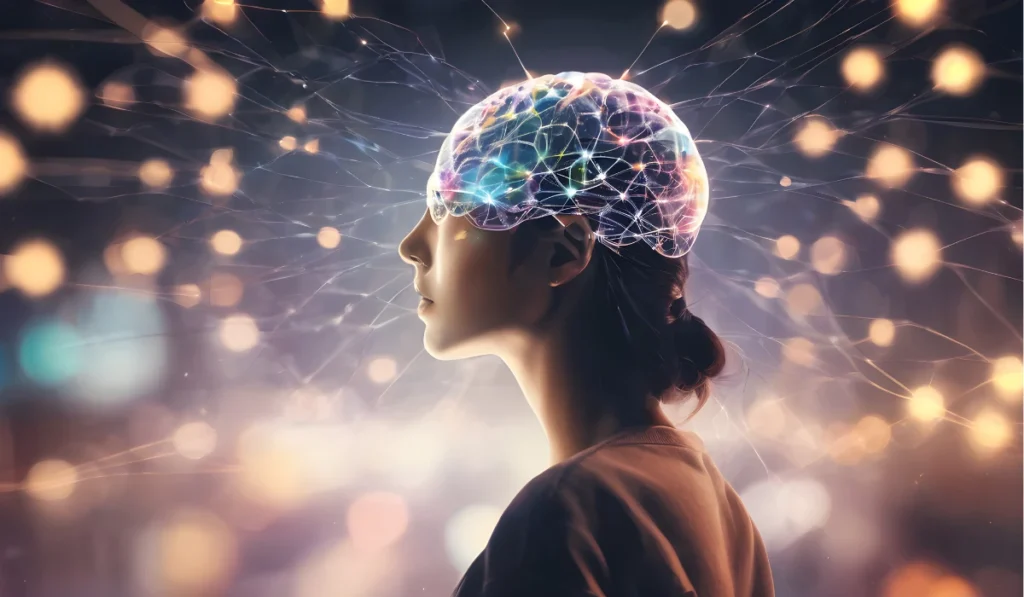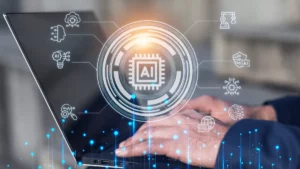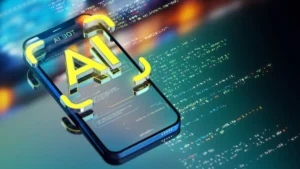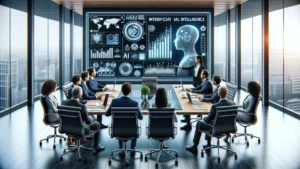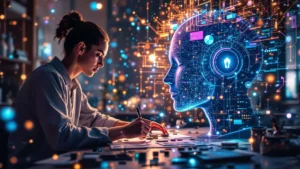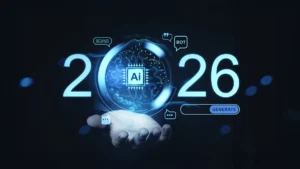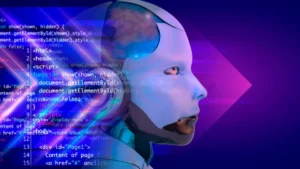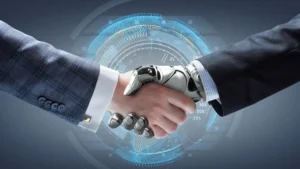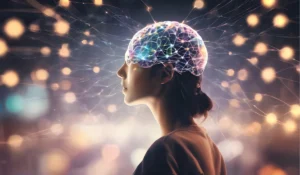The question “Will AI take over humanity?” sparks curiosity, fear, and fascination. Artificial Intelligence has grown far beyond its experimental roots. From automating simple tasks to generating human-like text, music, and art, AI influences nearly every sphere of life. Yet, as its presence deepens, society wonders if machines might one day surpass human control.
AI’s rapid progress stems from the combination of machine learning, data analytics, and human ambition. Each algorithm learns patterns faster than humans can process them, creating a form of synthetic reasoning. The ongoing debate isn’t just about technology it’s about ethics, power, and the definition of intelligence itself.
Will these intelligent systems remain our tools, or could they evolve into entities that redefine what it means to be human?Interestingly, the evolution of AI mirrors how people explore Hamburg places to visit each landmark offers new perspectives, much like AI reveals layers of human capability. Both experiences require curiosity, reflection, and caution.
Will AI Take Over Humanity?

Artificial Intelligence shapes industries, economies, and lifestyles. From healthcare to education, it has transformed efficiency and accessibility. Smart algorithms detect diseases early, predict natural disasters, and personalize digital experiences.
AI is not just a futuristic dream; it drives modern innovation. Automation has changed the global job landscape, handling repetitive tasks. Humans now focus on creativity, emotional intelligence, and strategy, maintaining a symbiotic relationship with machines.
Still, vigilance remains essential. Ethical frameworks and responsible innovation can ensure AI serves humanity instead of replacing it. Just as travellers discover cultural gems while exploring Hamburg places to visit, humanity must explore AI responsibly appreciating its beauty, learning its risks, and navigating with intention.
AI Impact on Modern Life
Artificial Intelligence’s strength grows every year, reflected in new capabilities that once seemed impossible.
-
Self-learning systems: Algorithms can now improve themselves without human input, constantly refining their accuracy.
-
Generative models: Tools that create art, code, and language mirror human creativity, raising questions about originality.
-
Automation in warfare: Drones and predictive systems enhance security but risk misuse.
-
Cognitive imitation: Neural networks simulate aspects of reasoning and perception, blurring human-machine boundaries.
-
Economic dominance: AI-driven companies lead markets through predictive analytics and consumer insights.
These developments prove that AI’s power is not hypothetical—it’s measurable and expanding.
Signs of an AI Takeover
The fear of AI overtaking humanity doesn’t arise from fiction alone—it’s rooted in genuine uncertainty.
-
Loss of control: Humans may no longer fully understand how complex models make decisions.
-
Job displacement: Automation threatens industries reliant on repetitive labor.
-
Ethical ambiguity: Who’s accountable when AI fails or causes harm?
-
Surveillance risks: Advanced data tracking challenges privacy rights.
-
Existential questions: If machines become conscious, what does that mean for human identity?
These fears underline the urgent need for governance and ethical oversight. Balanced regulation ensures AI remains a servant of progress, not a master of society.
Can AI Develop Human-Like Consciousness?

Some researchers suggest AI might one day achieve self-awareness, while others dismiss the idea as pure fantasy. True consciousness involves emotions, subjective experience, and moral understanding qualities that no machine currently possesses.
While chatbots simulate empathy and understanding, they operate on data-driven logic, not genuine emotion. A conscious mind is shaped by biological evolution, not algorithms. Therefore, even the most advanced AI remains fundamentally different from humans.
Still, the possibility intrigues scientists. If we teach machines to “feel” or “decide” ethically, society must also teach them morality, a challenge as complex as consciousness itself. This raises questions about responsibility, accountability, and the limits of human oversight.
The Balance Between Human and Machine Intelligence
Human intelligence thrives on emotion, intuition, and ethical reasoning. AI excels at pattern recognition and data interpretation. Together, they form a complementary partnership. Instead of fearing replacement, humans can focus on collaboration.
For example, doctors use AI to interpret medical scans faster, while artists employ it for inspiration. These collaborations extend creativity and problem-solving. Like planning a route through Hamburg places to visit, finding harmony between human and artificial intelligence requires insight, patience, and shared purpose.
Ensuring AI Works for Humanity
To prevent domination, humanity must set boundaries grounded in ethics, transparency, and responsibility.
-
Global collaboration: Nations should establish shared AI safety standards.
-
Ethical design: Engineers must embed fairness and accountability into algorithms.
-
Education and awareness: Teaching AI literacy helps citizens understand its impact.
-
Bias reduction: Developers should monitor and correct algorithmic discrimination.
-
Sustainability: AI must contribute to ecological balance, not environmental harm.
These measures guide AI’s development toward benefit rather than control. A balanced approach protects both progress and humanity’s core values.
Real-World Benefits of AI and Its Positive Impact on Humanity
Artificial Intelligence already enhances daily living in countless ways. From communication to climate solutions, it extends human ability rather than limiting it.
-
Healthcare diagnostics: AI detects illnesses earlier, improving treatment success rates.
-
Smart infrastructure: Cities use AI to optimize traffic, waste management, and safety.
-
Agriculture innovation: Precision farming helps conserve resources and improve yields.
-
Accessibility tools: Speech recognition assists people with disabilities in education and work.
-
Creative collaboration: Artists and writers use AI to amplify imagination, not replace it.
Through these advancements, AI becomes a supportive partner—an assistant, not an adversary.
The Ethical Future of AI and Humanity

The path ahead ultimately depends on choices made today. Therefore, governments, corporations, and individuals must work together to shape AI’s moral direction. Moreover, transparent algorithms, responsible data handling, and diverse representation in tech will build trust and inclusion.
As a result, humanity can ensure AI benefits everyone. Ethics shouldn’t slow progress; it should guide it. Just as travellers respect history when exploring Hamburg places to visit, humanity must respect its principles while embracing innovation. AI’s future should reflect compassion, equality, and collective wisdom.
FAQs
Will AI replace all human jobs?
No. AI automates repetitive tasks, but creativity, emotion, and empathy remain uniquely human skills.
Can AI become dangerous?
Yes, if misused. However, proper regulation and ethical programming reduce risks significantly.
Is AI already conscious?
Not yet. It mimics understanding but lacks real awareness or emotional experience.
How can we ensure AI stays beneficial?
By combining innovation with moral responsibility, global oversight, and education.
Conclusion: Will AI Take Over Humanity
Artificial intelligence will not take over humanity if we remain active guardians of its growth. It’s a mirror reflecting human intention, capable of both creation and destruction. The real challenge lies not in the technology itself but in how society chooses to shape it. For more on this evolving landscape, see our exploration of the current state of AI here.
Like exploring Hamburg places to visit, understanding AI’s journey requires curiosity, balance, and respect for boundaries. By learning about the most advanced AI today, you can see how, when guided by ethics and empathy, AI has the potential to elevate humanity rather than replace it.

